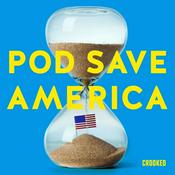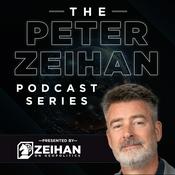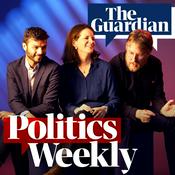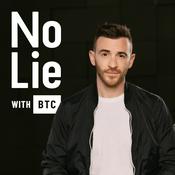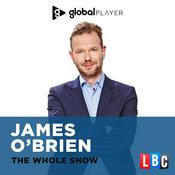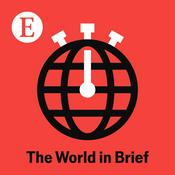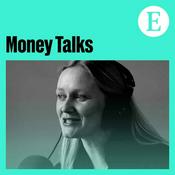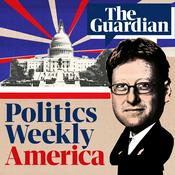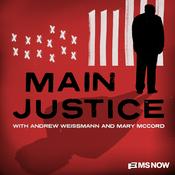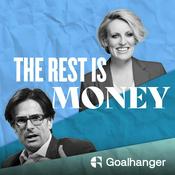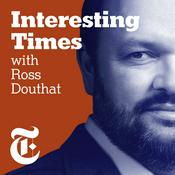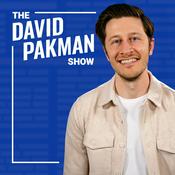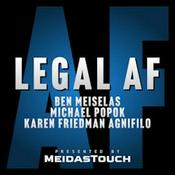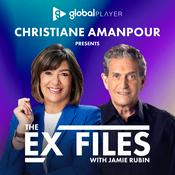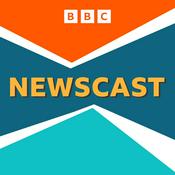Why Is This Happening? The Chris Hayes Podcast
MS NOW, Chris Hayes
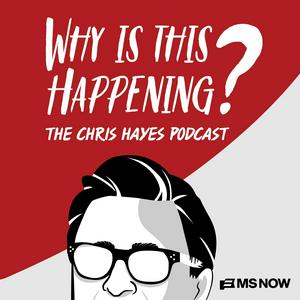
Latest episode
435 episodes
- It was only a year ago that Los Angeles was devastated by some of the worst wildfires in recent recorded history. Jacob Soboroff is the Senior Political and National Reporter for MS NOW and the New York Times best-selling author of "Firestorm: The Great Los Angeles Fires and America’s New Age of Disaster.” He joins WITHpod to discuss his own personal connection and story with his childhood home burning down, the politics of rebuilding and more.
Sign up for MS NOW Premium on Apple Podcasts to listen to this show and other MS podcasts without ads. You'll also get exclusive bonus content from this and other shows.
Hosted by Simplecast, an AdsWizz company. See pcm.adswizz.com for information about our collection and use of personal data for advertising. - It's been a little more than a week since the United States invaded Venezuela and abducted its president Nicolás Maduro. Trump has contended that Venezuela, which reportedly has the world’s largest known oil reserves, has "unilaterally seized and sold American oil." There's a lot to discuss about the geopolitical context and how it intersects with new energy developments. Senator Ruben Gallego (D-AZ) is the creator of a new energy plan and joins Chris Hayes to talk about that plan, his reaction to Venezuela and more.
Sign up for MS NOW Premium on Apple Podcasts to listen to this show and other MS podcasts without ads. You'll also get exclusive bonus content from this and other shows.
Hosted by Simplecast, an AdsWizz company. See pcm.adswizz.com for information about our collection and use of personal data for advertising. - Listen to this special invitation from Rachel Maddow and sign up for MS NOW Premium on Apple Podcasts to take advantage of a 3-month free trial!
With MS NOW Premium, you can get our entire suite of podcasts – everything from “The Last Word with Lawrence O’Donnell” to “The Best People with Nicolle Wallace” – all ad-free. As a subscriber, you also get early access to select shows, plus exclusive bonus content – like a new episode of “Rachel Maddow Presents: Burn Order,” out Friday. Sign up right here, then search “Burn Order” to listen to that Premium episode.
There’s a lot in store for 2026. So to celebrate the new year, we’re giving away 3 months free if you sign up by the end of January! It’s just $2.99/month or $29.99/year after that. Thanks for listening!
Sign up for MS NOW Premium on Apple Podcasts to listen to this show and other MS podcasts without ads. You'll also get exclusive bonus content from this and other shows.
Hosted by Simplecast, an AdsWizz company. See pcm.adswizz.com for information about our collection and use of personal data for advertising. - Autonomous vehicle technology and safety has changed drastically recently. Once thought of as a far off goal, we’re now at a point where self-driving cars have begun operating at quite a sophisticated and high level. But there's still a lot of work to be done before these vehicles become more mainstream. Tim Lee is a journalist and the founder of Understanding AI. He joins WITHpod to discuss advancements in autonomous tech, the impact on jobs, safety concerns and more.
Sign up for MS NOW Premium on Apple Podcasts to listen to this show and other MS podcasts without ads. You'll also get exclusive bonus content from this and other shows.
Hosted by Simplecast, an AdsWizz company. See pcm.adswizz.com for information about our collection and use of personal data for advertising. - Happy New Year! Given the holidays, we're re-sharing one of our most memorable conversations. You’ve probably come across content online that seems real but is actually fake. And that experience is becoming more common with the proliferation of AI generated content. Our guest this week points out that the mental gymnastics of this starts to take a toll. Jia Tolentino, a staff writer at The New Yorker, wrote a piece all about this aptly titled, “My Brain Finally Broke.” She joins WITHpod to discuss how AI is changing our perception of the world, how online content can make us more likely to detach from reality and more. Note: this episode was recorded on 6/11/25.
Sign up for MS NOW Premium on Apple Podcasts to listen to this show and other MS podcasts without ads. You'll also get exclusive bonus content from this and other shows.
Hosted by Simplecast, an AdsWizz company. See pcm.adswizz.com for information about our collection and use of personal data for advertising.
More News podcasts
Trending News podcasts
About Why Is This Happening? The Chris Hayes Podcast
Every week Chris Hayes asks the big questions that keep him up at night. How do we make sense of this unprecedented moment in world history? Why is this (all) happening? This podcast starts to answer these questions. Writers, experts, and thinkers who are also trying to get to the bottom of them join Chris to break it all down and help him get a better night’s rest.
Podcast websiteListen to Why Is This Happening? The Chris Hayes Podcast, Cross Party Lines and many other podcasts from around the world with the radio.net app

Get the free radio.net app
- Stations and podcasts to bookmark
- Stream via Wi-Fi or Bluetooth
- Supports Carplay & Android Auto
- Many other app features
Get the free radio.net app
- Stations and podcasts to bookmark
- Stream via Wi-Fi or Bluetooth
- Supports Carplay & Android Auto
- Many other app features


Why Is This Happening? The Chris Hayes Podcast
Scan code,
download the app,
start listening.
download the app,
start listening.


